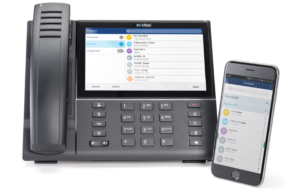 SIP Calls stands for Session Initiation Protocol calls and refers to voice calls conveyed over a SIP Trunk or SIP Channel. SIP is often confused with VoIP (Voice Over Internet Protocol). While SIP isn’t exactly the same as VoIP, the two often work in conjunction with one another. SIP also has the ability to convey video, instant messaging, and other information.
SIP Calls stands for Session Initiation Protocol calls and refers to voice calls conveyed over a SIP Trunk or SIP Channel. SIP is often confused with VoIP (Voice Over Internet Protocol). While SIP isn’t exactly the same as VoIP, the two often work in conjunction with one another. SIP also has the ability to convey video, instant messaging, and other information.
SIP Calling
SIP Calls are voice calls that connect parties via specific routes. Traditional business phone calls were made via the PSTN (Public Switched Telephone Network). Managing the calls (i.e., their routing/voicemail/etc.) was done over a PBX (Private Branch Exchange). The majority of SIP consumers are businesses. Businesses that have an on-site PBX connected to a PSTN used to make calls with their traditional, legacy systems, but with the digital and internet age, that system has dramatically changed.
Implementing SIP Calling
SIP was one of the solutions for businesses that wanted to take advantage of digital communications. SIP handles the increased connections that initially came with having both landlines and internet connections running through the same on-site PBX that was designed to only handle voice. Now, with SIP Trunks, businesses get both cloud-based communications and can expand and contract to accommodate spiking call activity.
SIP Calling Is Just One Facet of Cloud Communications
As mentioned previously, SIP can convey different types of data as opposed to voice only. For this reason, it has many of the same capabilities of cloud communications, including a large amount of customizations. You can make these customizations, for free, with the press of a button. SIP Calls operate through connections optimized for the prioritization of voice over data; this means that when traffic is at a peak the voice connections remain clear.
If you have any questions regarding SIP Calls, or business phone systems in general, please contact Advanced Communication Systems today at 800-750-3624. You can also follow us on Facebook.
